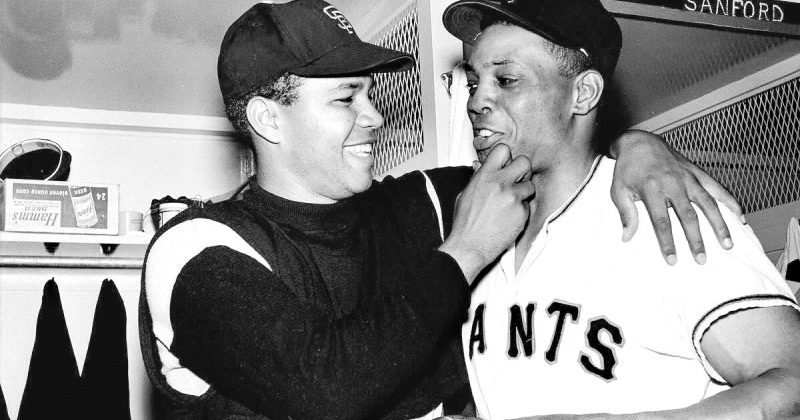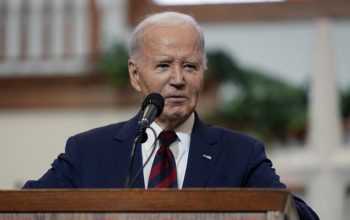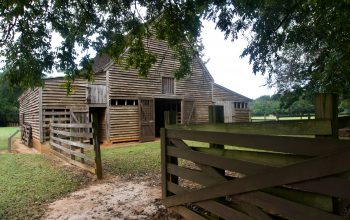news
“Willie Mays: An Immortal Giant”, an article by Dr. Leonel Fernández
June 24, 2024
I remember when I was only nine years old, my mother, Doña Yolanda, allowed me to go with Gallego, a close adult friend of the family, to the Polo Grounds, to watch my first Major League game between the New York Mets and the San Francisco Giants.
The main reason for attending that particular game was to see our great Juan Marichal pitch. Unfortunately, that did not happen. The Monster from Laguna Verde was unable to pitch that night, an event which frustrated me tremendously.
However, that was quickly compensated because during the game I was able to see in person the flamboyant and picturesque Number 24, the center fielder of the San Francisco Giants, Willie Mays. From that moment on I became a passionate and enthusiastic fan of his. Over time, I was able to see him and greet him on different occasions.
Now, upon learning of his death this past June 18, I feel as if an end of an era has passed. It was the farewell of a brilliant star who, with his spectacular feats, illuminated the favorite pastime of immense multitudes.
His death took us back in history. Since last year it had been agreed to pay tribute to him at Rickwood Field, where he had begun his career with the Black Barons, a team that belonged to the Negro League. The event would also be recognized as part of the celebration of Juneteenth, or Emancipation Proclamation Day, which ended slavery in the United States after the Civil War.
To give greater prominence to these events, a regular Major League game between the San Francisco Giants and the St. Louis Cardinals was also to be played at the same venue. The Giants star had excused himself for not being able to attend. He said he would follow the events from a distance. However, he did not even have that privilege. Two days earlier he passed away. At Rickwood Stadium he was remembered with a long-standing ovation.
A Sensational Career
Willie Mays burst into the Major Leagues with the New York Giants in 1951, after Jackie Robinson paved the way for other Black players to reach the big leagues.
Juan Marichal hugged Willie Mays after his home run ended the Dominican’s duel with Warren Spahn, 1-0.
His beginnings were not auspicious at first. He did not connect a single hit during his first 12 at-bats in the Major Leagues. Then, he broke out with a home run, only to go back to another bad streak, which led him down at spiral of anguish and anxiety.
That’s when Leo Durocher, the team’s manager, showed up and expressed his absolute confidence in him, assuring him that as long as he was manager his position as center fielder was guaranteed.
That turned things around for him. He soon became a sensation. So much so that he was named Rookie of the Year. However, during the next two years he was removed from baseball. He was called to join the U.S. army, which was then at war with Korea.
Upon his return in 1954, he put all his talents to the test. He led his team to the World Series, making a catch in center field with his back to home plate in the first game of the series, considered the most amazing play in baseball history. He was also selected as the Most Valuable Player (MVP) that year. In 1957, the Giants, following the Dodgers, moved to the U.S. West Coast, and changing its name to the San Francisco Giants. There, Willie Mays continued his successful career, leading his team to another World Series against the New York Yankees in 1962. In 1965 he was again selected as Most Valuable Player.
Terminó su carrera con un promedio por encima de 300. Jugó en cerca de tres mil partidos; anotó más de 2 mil carreras; impulsó otras tantas; y alcanzó 660 cuadrangulares. Participó en 24 Juegos de Estrellas; obtuvo 12 Guantes de Oro; robó más de 300 bases; y ha sido considerado por muchos, como el más completo jugador de todos los tiempos.
He finished his career with an above-300 average. He played in nearly three thousand games; scored more than two thousand runs; drove in as many; and hit 660 home runs. He participated in 24 All-Star Games; won 12 Golden Gloves; stole more than 300 bases; and has been considered by many as the most complete player of all time.
Mays and Marichal
In 1957, after the end of the Major League season, Willie Mays, in addition to Mexico and Puerto Rico, visited the Dominican Republic with a team known as the Willie Mays Black Stars. He was received with tremendous enthusiasm. Four games were held at the then Trujillo Stadium, today the Quisqueya Juan Marichal Stadium. One of the local teams, the Escogido, managed to win one of those games.
Felipe Rojas Alou was the first Dominican to establish a relationship with Willie Mays, when he joined the San Francisco Giants in 1958. Then, two years later, in 1960, Juan Marichal and Mateo Rojas Alou arrived. The entry of Jesús, the youngest of the Rojas Alou trilogy, occurred in 1963.
The role played by Willie Mays in the famous 16-inning game – in 1963 – in which Marichal obtained a 1-0 victory against Warren Spahn of the Milwaukee Braves, is memorable.
The game could have ended in the ninth inning with a home run by Willie McCovey that, however, was considered a foul by the umpires. The game was extended seven more innings.
One inning after another passed, and Alvin Dark, the Giants’ manager, was worried about how this situation might impact his star pitcher Juan Marichal. He wanted to replace him, but Marichal felt that as long as his much older rival was on the mound, he could not leave the game.
After wrapping up his pitches in the fifteenth inning, he waited for Willie Mays before entering the dugout. He explained that the manager was no longer willing to let him continue pitching. Mays told him: “Don’t worry kid, I’m going to win this game for you.”
And so, he did. In his turn at bat, he hit it out to left field. That was Willie Mays, the great baseball legend.
For his merits, Barack Obama decorated him with the Presidential Medal of Freedom.
With his death, I feel that something within me was also been released.





